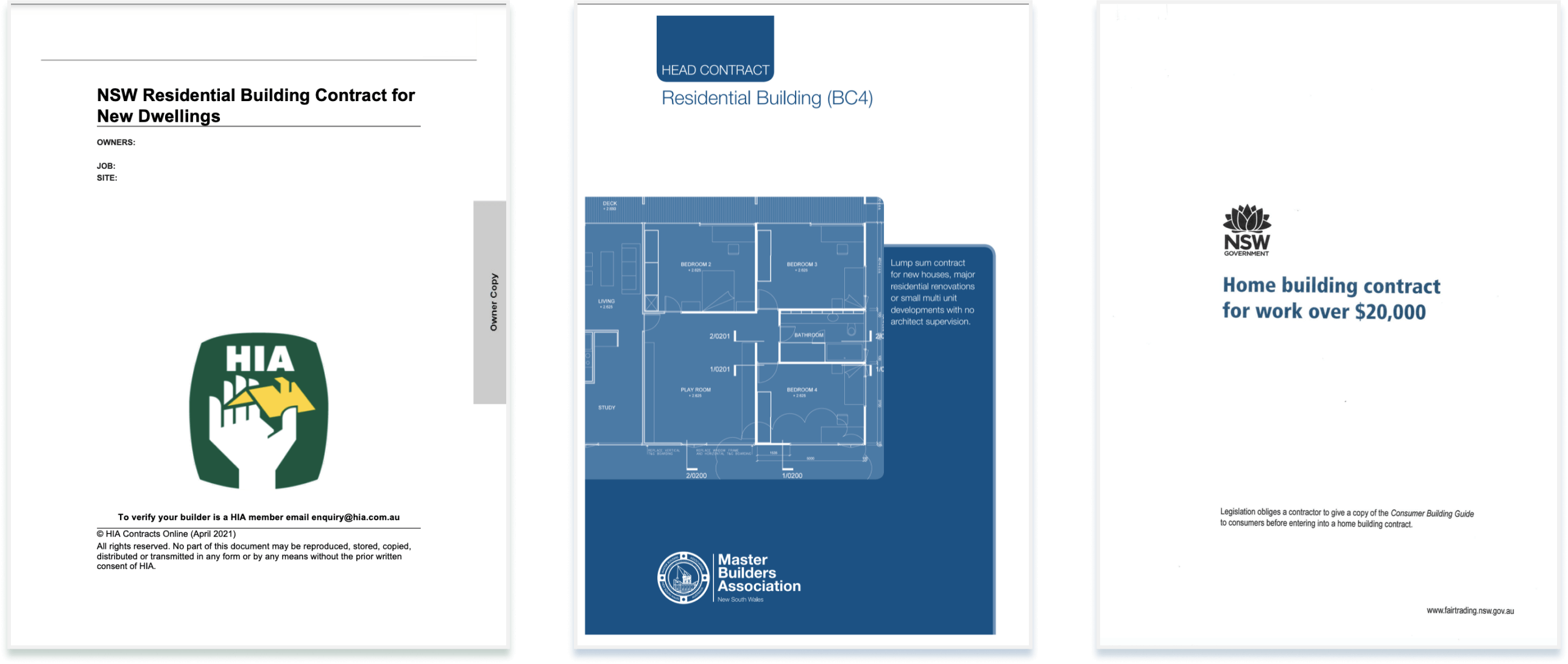
What are Variations?
Variations are changes or alterations made to the work, which are outside of, or contrary to, those specified in the scope of works.
These include changes to the:
- Design
- Materials
- Quantities
- Quality
- Work sequence
- Scope of Work
Both the Home Owner and the Builder may request for Variations, provided that they follow the proper procedure laid out in their construction contracts, and that both parties agree on the proposed Variations.
Examples of Variations
In residential construction in NSW, Variations usually involve changes to, or deviations from the Plans and Specifications.
In 2021, the particular kinds of Variations that occurred during home building were as follows:
- Additional Work to Comply with Government Regulations
- Changes in Price of Materials
- Omissions from the Scope of Works
- Additional Certification and Design
- Changes to the Plans
- Additional Insurance
- Additions to the Scope of Works
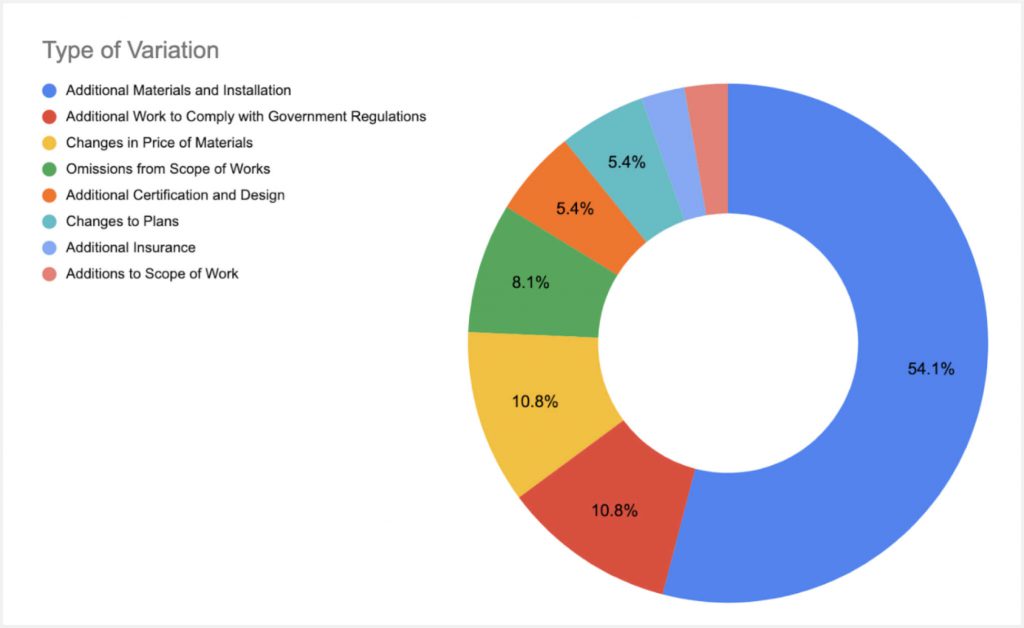
Variations in home building, when proper
Variations are not inherently wrong. Either party is allowed to make requests for Variations, and to be valid, the proposed Variations need to be approved and agreed to by the consenting party.
These procedures should be found in your contract’s Variations Clause.

If you’re using the Housing Industry Authority (HIA)’s NSW Residential Building Contract for New Dwellings, you will find the clause here:
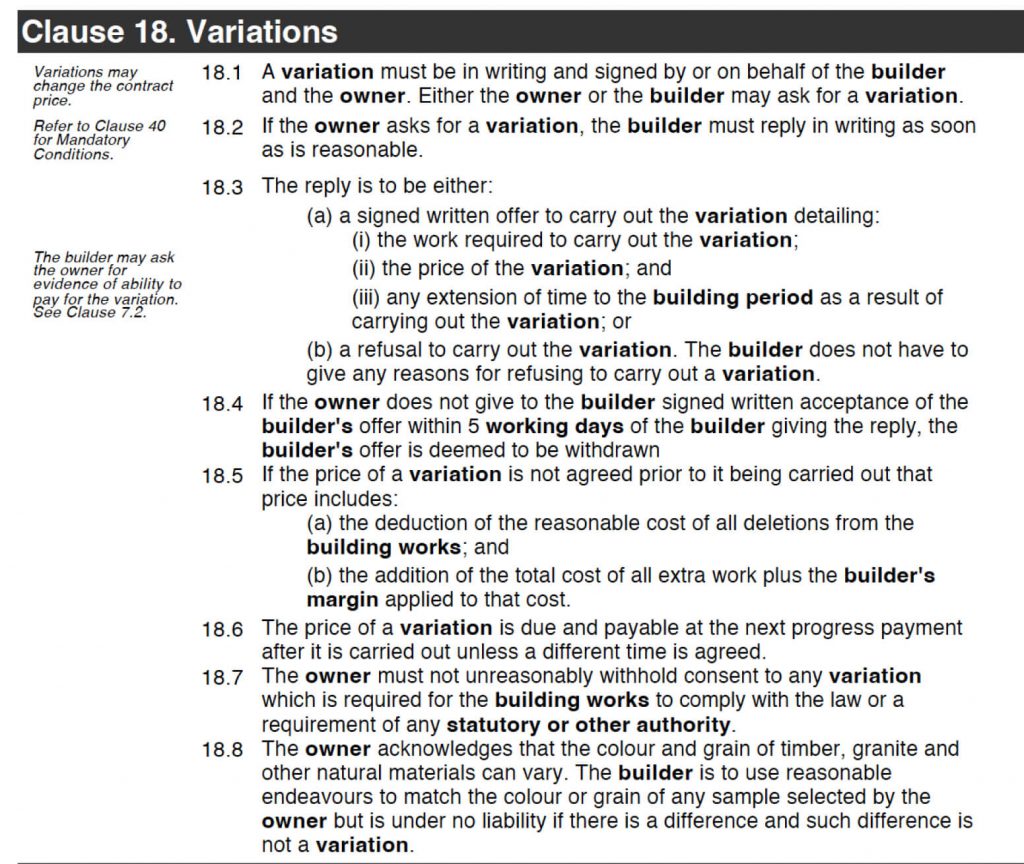
If you’re using the Master Builders (BC4) Residential Building Contract, you will find what you need to know about Variations in the following clauses:
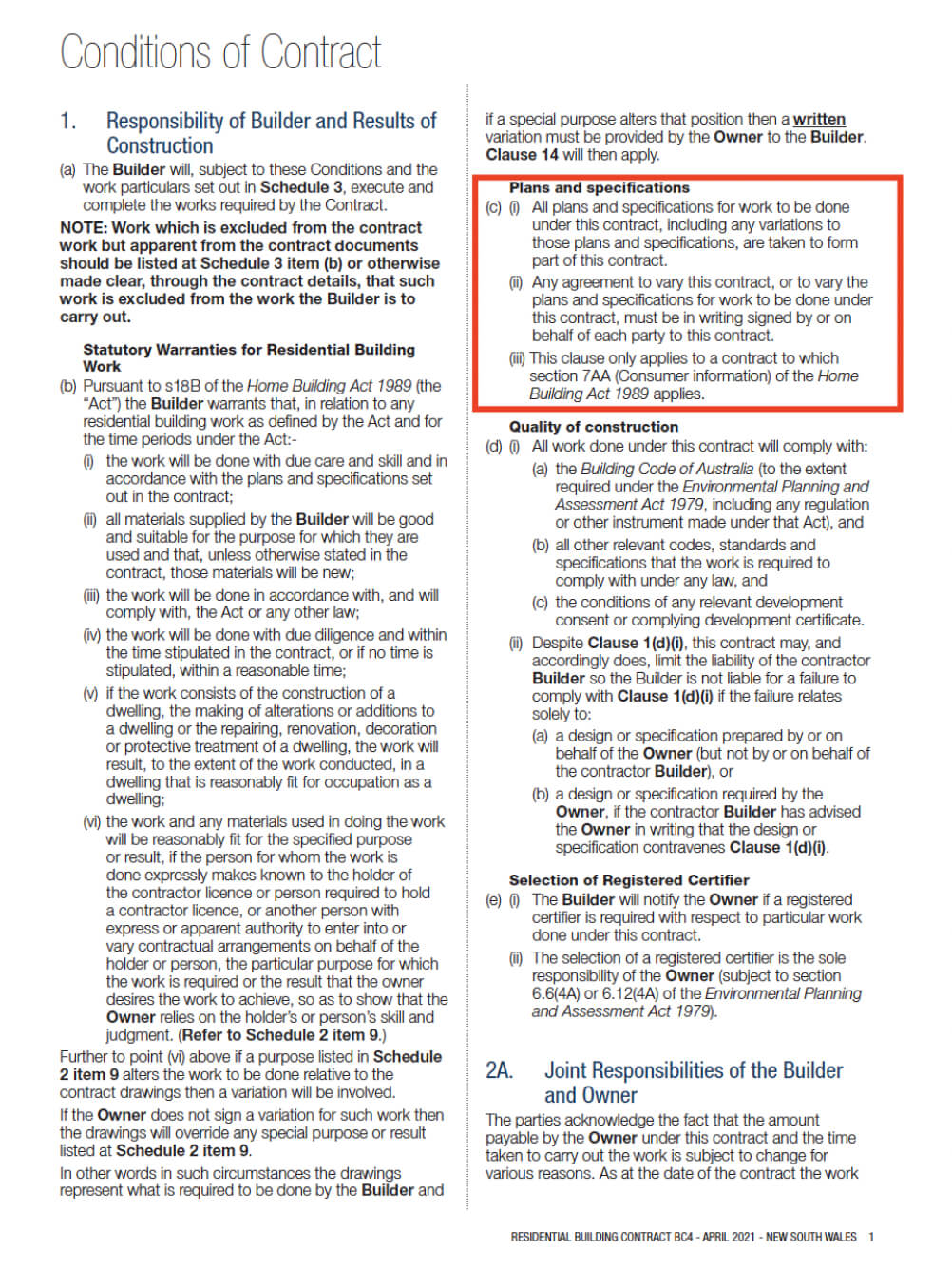
If you’re using the Fair Trading Home Building Contract for Work Over 20,000 issued by the NSW government, you will find the relevant clause here:
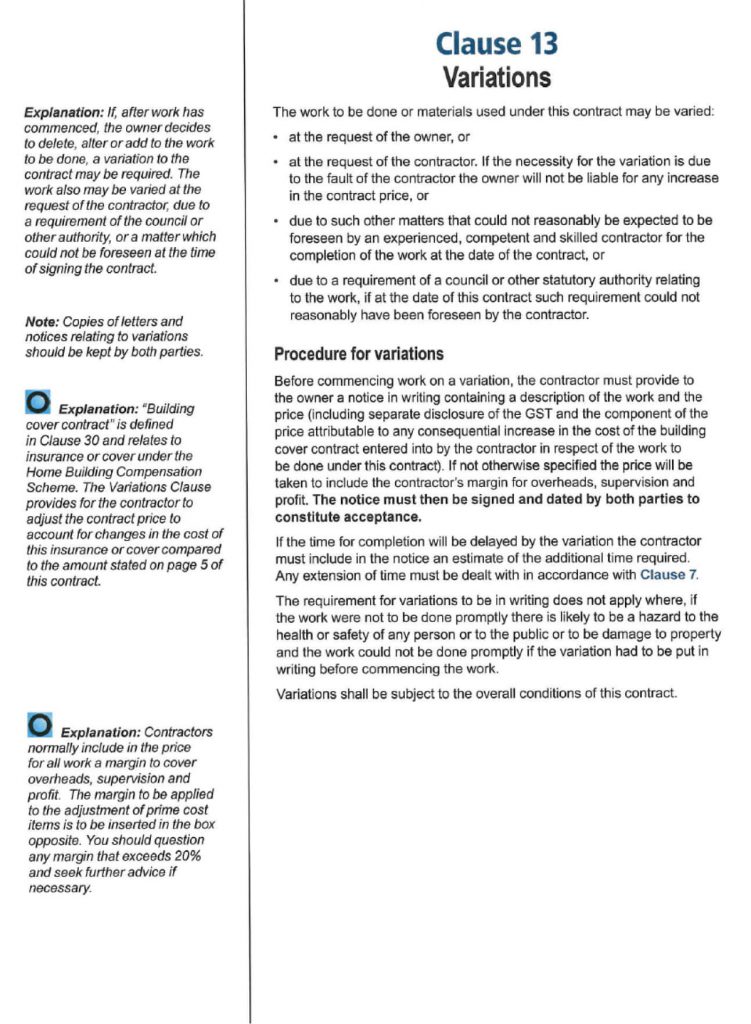
And, if you’re using a custom contract, you best make sure there is a clause explaining:
- how Variations can be validly made,
- when it becomes a problem,
- and what to do in case it does
In this case, a thorough Contract Review by a specialist construction lawyer would be your best best bet.
When Variations in home building become a problem
In the preceding section, we saw that Variations aren’t inherently bad – that there is a procedure to be followed so as to ensure that the Variations are valid, and as a result, are allowed to affect the cost of the build.
On the other hand, there are instances when Variations become a source of building dispute, or may potentially become a source of dispute.
The graph below shows the typical scenarios when Variations may be, or have become, a problem:
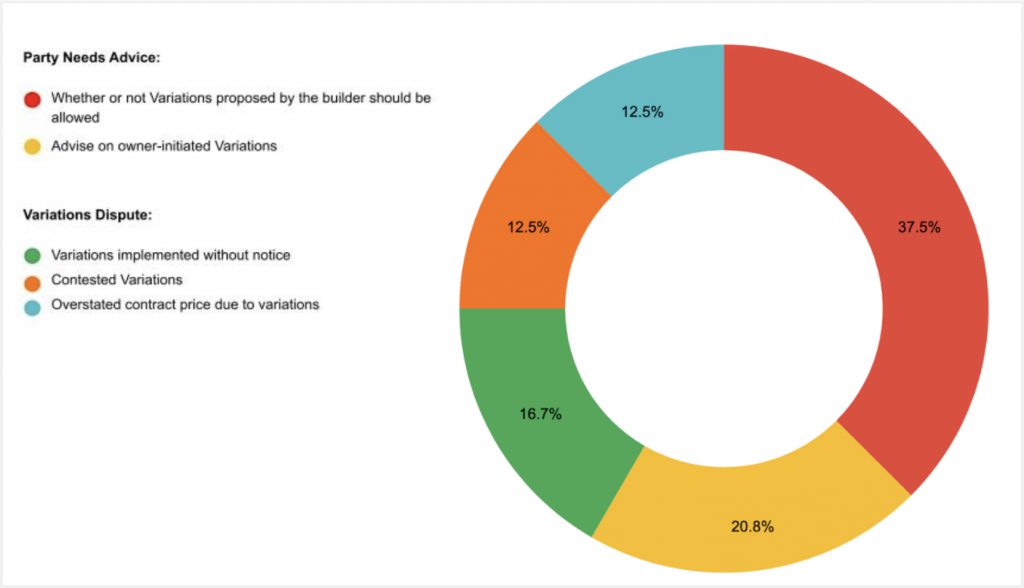
From the above, we can see that the most common Variations issue that clients need advice on are on whether or not Variations proposed by the builder should are proper and should be allowed (37.5%); while the most common Variations disputes are those having to do with unconsented deviations from the Plans and Specifications (29.2%).
Related Content: Managing Variations: Tips for Keeping Your Project on Track
What to do when you don't agree with the Variations
Your contract has clauses that tell you what you can do if and when the builder makes Variations that you don’t agree with, or when the Variations you agreed to results in a price dispute. These usually involve sending them a breach notice, and a dispute resolution procedure.


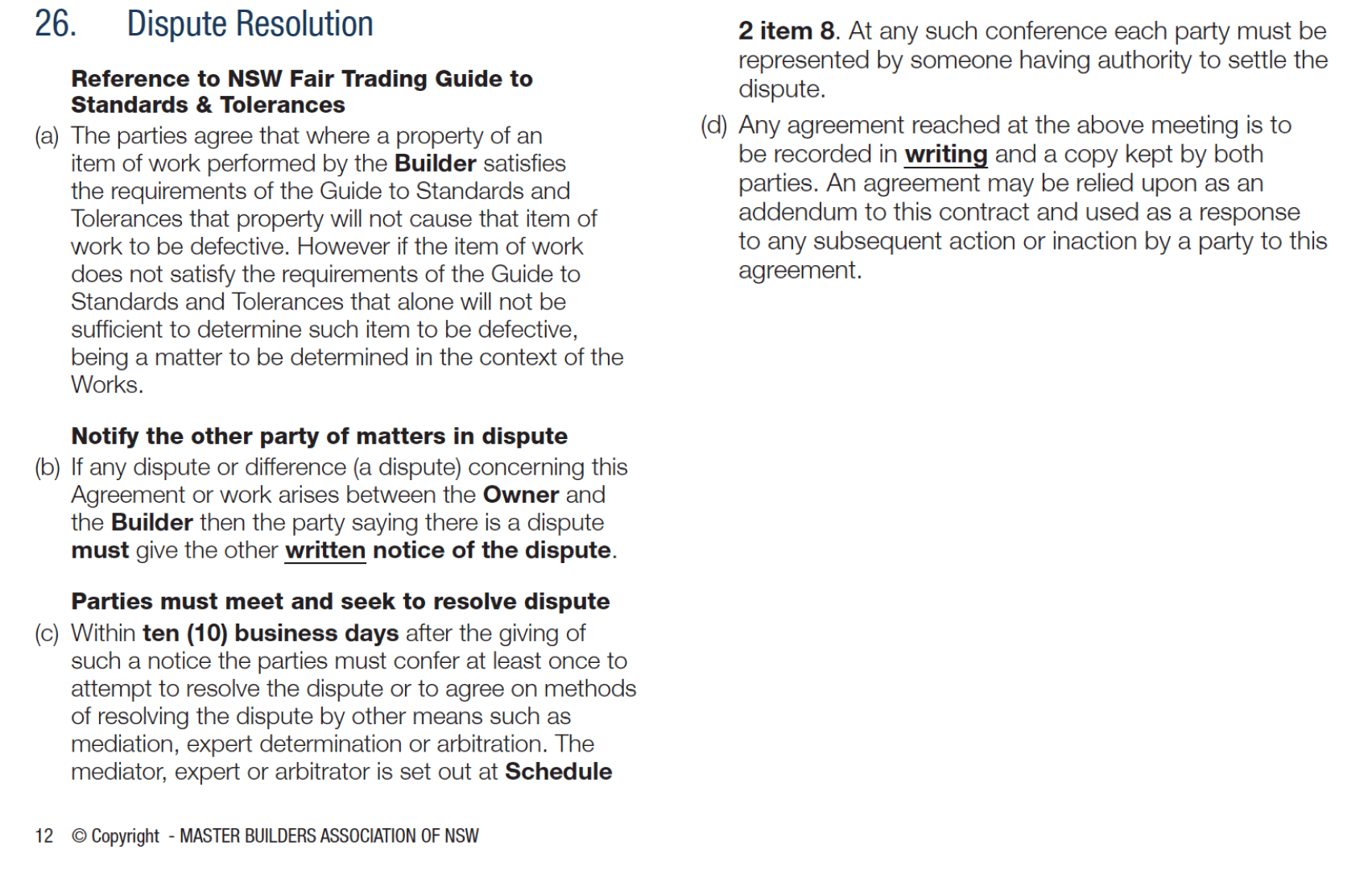
If you’re using the government-issued Home Building Contract for Work Over 20,000, you’ll find the relevant provisions here:
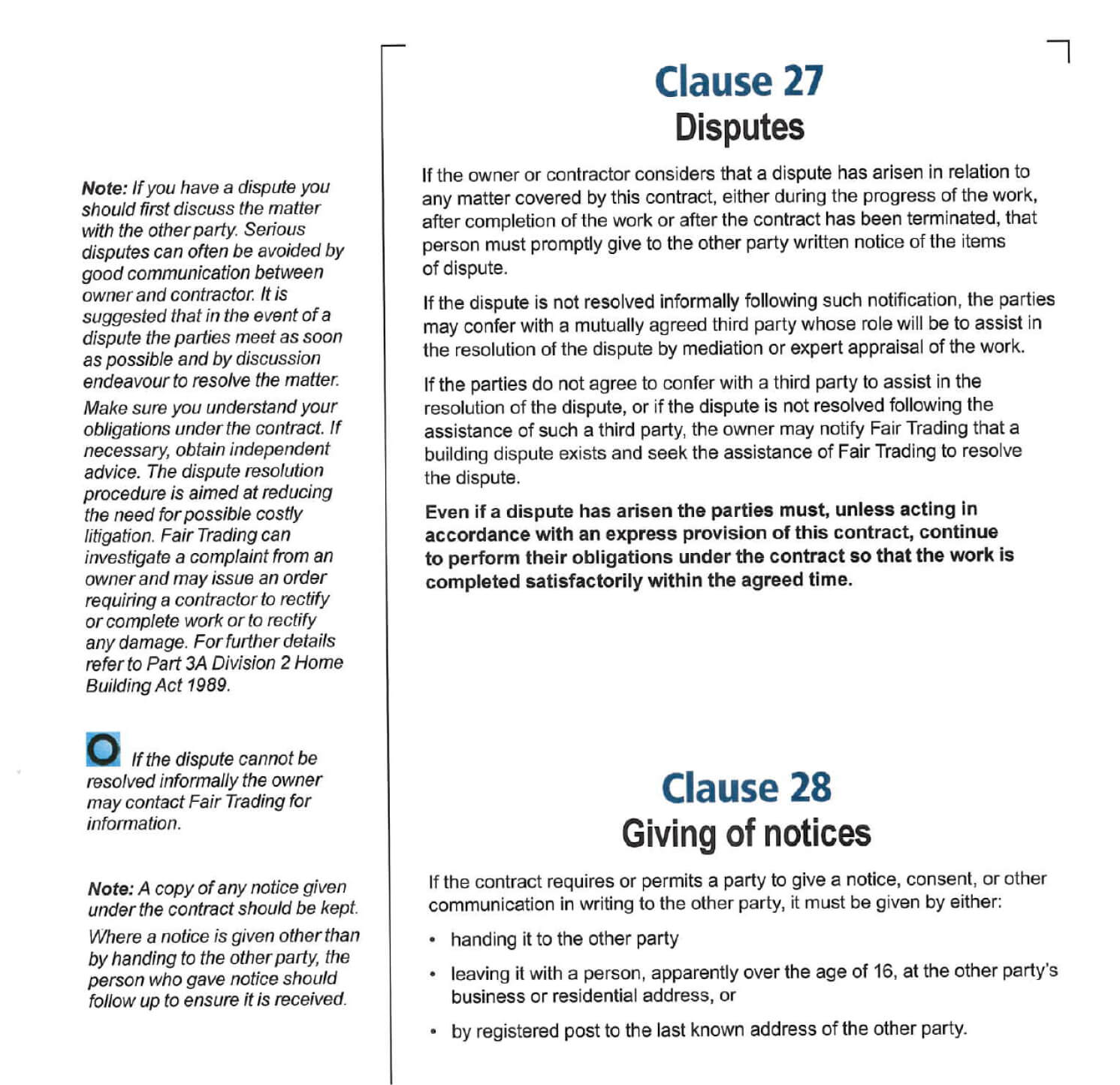
If you’re using a standard form contract, make sure they contain terms analogous to the above. Best to consult a construction lawyer for review and advice in such case.
Get Expert Construction Contract Review and Advice
Get Your Construction Contract Reviewed Now
Step 1:
Simply fill out this form and upload your contract.
Step 2:
We’ll review it and return to you with a fixed-fee quote.
Minimise construction risks on cost, time, and quality.
Get Home Building Contract Review and Advice now.
If dispute resolution is not the solution
In cases where the Variations dispute remains unresolved despite having undergone dispute resolution procedures, you may take your matter to the Office of Fair Trading. If after that, the dispute still remains unresolved, you have further recourse with the NSW Civil and Administrative Tribunal (NCAT), and final recourse with the courts.





